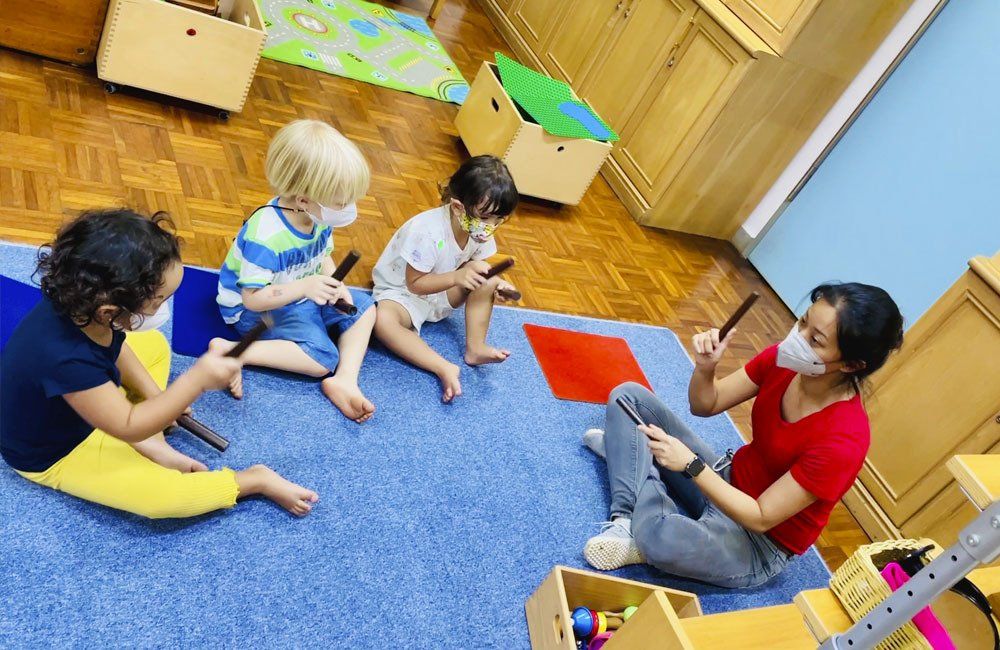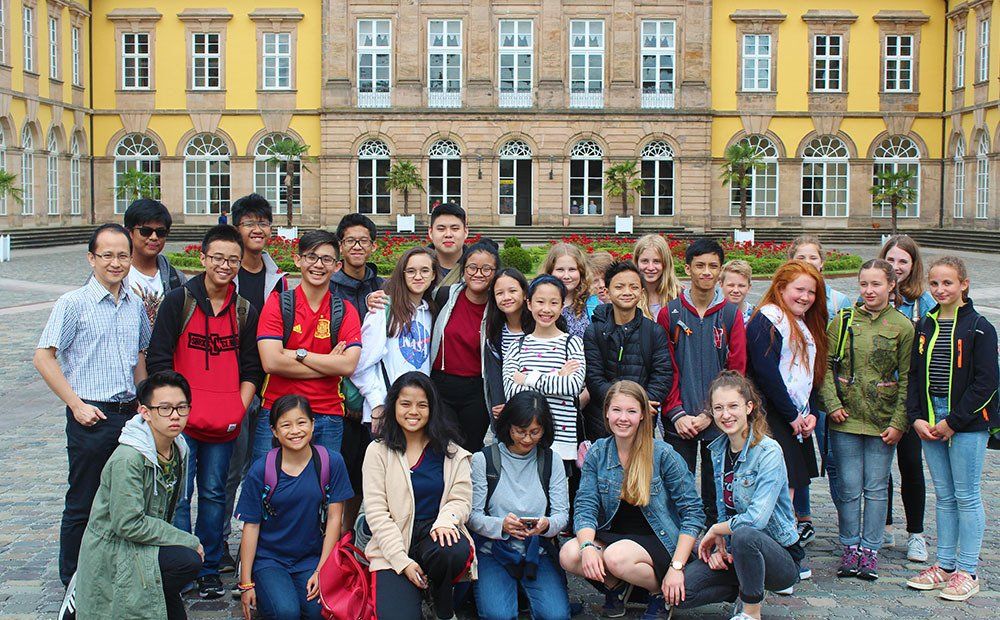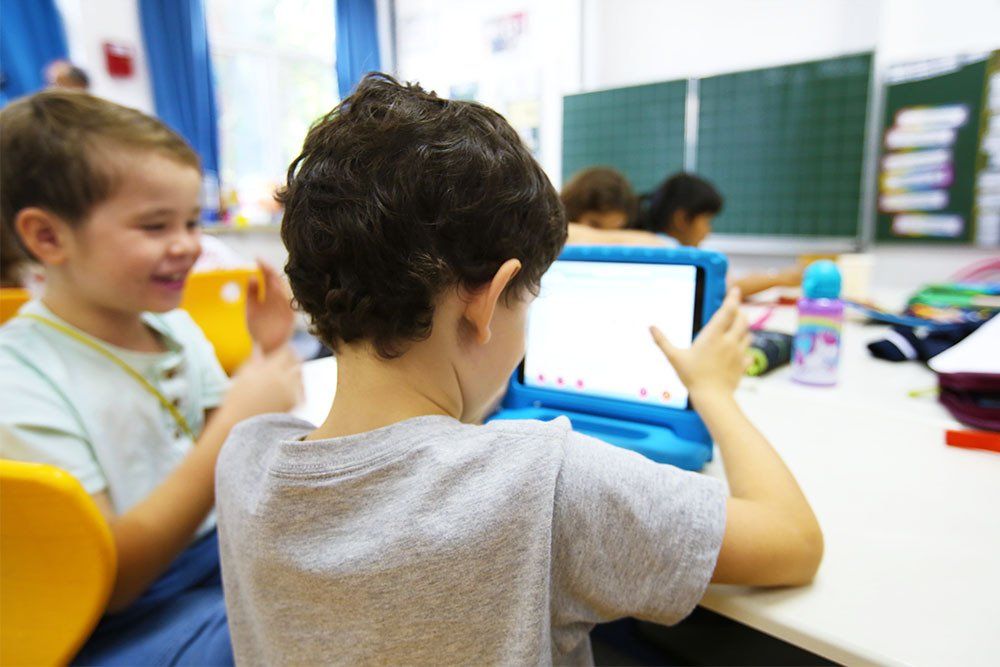
At the German School Jakarta (DSJ), our students are unique in mastering at least three languages: English, Indonesian, and German. In secondary school, students also have the opportunity to learn French as an additional foreign language. While most international schools in Indonesia focus on English and Indonesian, our International Program stands out. Later in this article, we’ll explore some of the research that shows why multilingual education is so advantageous. But first, we want to emphasize why German is a particularly valuable language for your child.
German is among the top ten most spoken languages in the world, and Europe’s most spoken mother tongue. It is also an important economic and scientific language, being the second most-used language in scientific publications worldwide. Proficiency in German certainly opens many doors for your child.
In fact, graduates of our
DIA (Deutsches Internationales Abitur) curriculum
immediately gain access to any university in Germany. They do not even have to compete for one of the study places reserved for foreigners, as they are considered equal to students with German citizenship for university enrollment.

This is one primary reason why Indonesian parents choose to send their children to DSJ. Germany's over 400 universities are among the top-ranked institutions for higher learning in the world, according to ‘THE’ Times Higher Education. In its 2024 World University Rankings, 21 universities in Germany made the top 200 list, making Germany the third-best represented country in the world. Moreover, German universities are very friendly to foreign students, hosting over 400,000 non-German students every year. Students are attracted to German universities due to the wide range of study options; as of 2020, there were over 20,000 different course offerings. And, above all, Germany is a leader in science and industry, allowing students interested in those fields to truly thrive.
But the opportunities for our graduates aren’t just limited to German post-secondary schools. Our multilingual curriculum successfully prepares them to attend ANY English-speaking university as well, and have the adaptability to flourish in any cultural environment they choose to explore.
By becoming proficient in Indonesian, English, and German, graduates of DSJ are uniquely poised to find success in their future careers, as recent statistics show that 50% of organisations hiring today are seeking employees fluent in multiple languages.
How the DSJ International Program works
First and foremost, many parents wonder if their child has to speak German before enrolling at DSJ. Fortunately, this is not the case at all. Non-German speaking students will receive individually tailored language courses until they are performing at the same level as their German peers.

In fact, we have carefully crafted curricula to ensure that non-German students find ample success at DSJ. Our International Program begins with our earliest learners in preschool (ages 2-3 years old) and ends in primary 6, after which students merge with the German program. Our curriculum is designed to gently introduce German through play, songs, and cultural exposure, while still utilizing English and Indonesian in the daily routine. This gradual approach is designed for children who have no previous experience with the German language.
Our meticulously crafted One-Teacher-One-Language System ensures that every child meets the stages of language acquisition for each respective language. As students progress through primary school, this is accomplished by teaching each subject in a specific language. So, mathematics and civics are taught in Indonesian, while science, computer science, and arts are taught in English. Then, there’s a specific German foreign language class, which is taught in German. Sports and music are taught alternatively in German and English. Lastly, religion and ethics rotate between English, Indonesian, and German.
Following this model, by the time they reach 5th grade, students in the International Program have built a significant enough foundation to
merge with the German program and continue their studies following the world-renowned German curriculum.

One of the highlights of this program is a foreign exchange in Germany, which takes place in grades 9 and 10. By this time, students will have become fully proficient German speakers, in addition to having mastered both English and Indonesian.
From toddlers to adolescents, DSJ carefully guides students in multilingual competence, creating an environment where every child can find success, no matter their family’s language background. Not without pride, we claim that
for the past 12 years, 99% percent of our students have graduated successfully, and almost half of them are from non-German-speaking households.
Research-Backed Benefits to Multilingual Education
In the twentieth century, there was a myth that multilingual education confused small children and possibly made them less intelligent. But subsequent research showed this couldn’t be further from the truth!
We know now that
multilingual learning has the biological, chemical, and physical capacity to reorganize the brain's structure and enhance its function. In fact, one study showed how bilingual toddlers actually had more mental flexibility than their monolingual peers due to increased development in their prefrontal cortex. This results in better executive functioning, which has lifelong benefits. Individuals with more advanced executive functioning skills can suppress automatic reactions to act in a more thought-out manner, redirect their attention in an intentional way, adapt their behavior based on new stimuli, concentrate better, and create (and follow through on) long-term plans.

Learning multiple languages as a child means that you’re constantly exercising your brain as you jump from one language to another. This also leads to another benefit: the ability to shift your perspective and experience a situation from another person’s point of view. That’s right, multilingual children actually show a stronger sense of empathy, which continues into adulthood. On the one hand, this allows your child to grow into a more compassionate person. On the other hand, it will also help them to find greater success in the business world, as greater emotional intelligence will enhance their ability to communicate in today’s global communities.
It should come as no surprise then that multilingual children are more creative than their monolingual peers. They can readily solve brain teasers and riddles, plus demonstrate more out-of-the-box thinking when it comes to solving tricky problems. Studies have shown that adults experience some of these benefits too if they choose to learn another language later in life. However, the effects are much more pronounced in children, which further supports the International Program of DSJ for its youngest students.

With this wide range of benefits, it’s beyond question that multilingual competence is a key component of your child’s intellectual and personal development. The German DIA curriculum and the school’s trilingual approach offer a uniquely compelling environment for Indonesian families. It opens up exciting opportunities for your child to study at German universities, some of the top-ranked institutions in the world. But the possibilities don’t end there ...
As a trilingual learner, your child is amply prepared to study, work, and explore ANYWHERE in the world. Assuredly, they will have the tools and skills to thrive in our increasingly globalized future.
CONTACT & SOCIAL
CONTACT & SOCIAL
CONTACT & SOCIAL
CONTACT & SOCIAL
© 2024 German School Jakarta I Legal Notice I Privacy Policy
Created by schmidtideas
© 2024 German School Jakarta I Legal Notice I Privacy Policy
Created by schmidtideas



